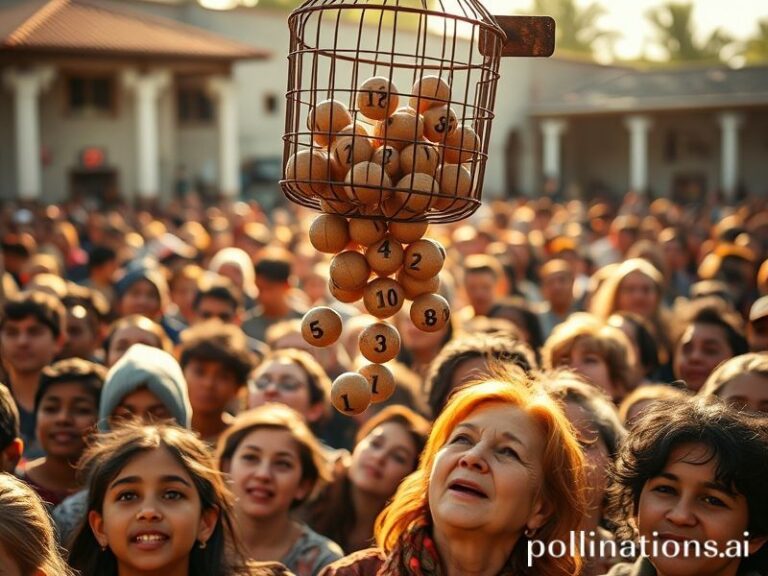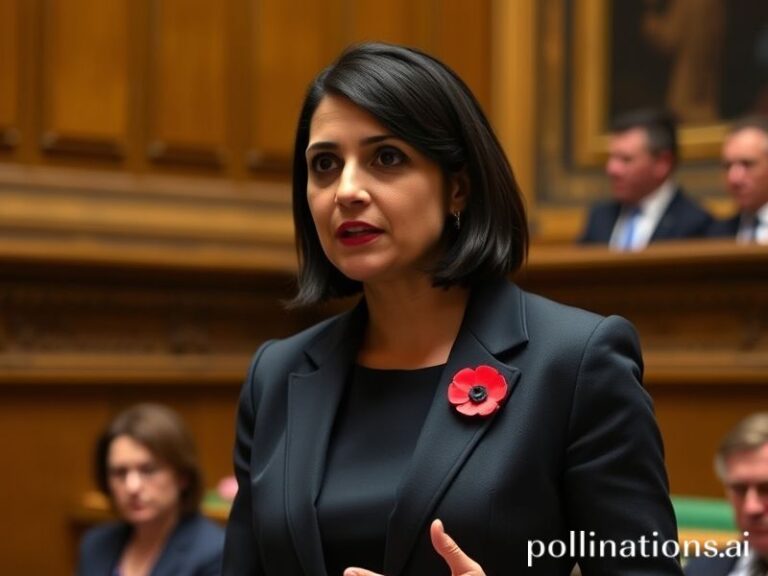Pickin’ on a Burning Planet: Brad Paisley’s Global Career as Accidental Soft-Power Propaganda
**Nashville’s Soft-Power Envoy: How Brad Paisley Became the Accidental Soundtrack of a Fracturing Planet**
By the time the first chorus of “American Saturday Night” reaches a dive bar in Lagos, the beer is warm, the generator is coughing diesel, and nobody in the room has ever seen a Chevy—yet they still mouth the words “French kiss,” “Italian ice,” and “Canadian bacon” like a Rosetta Stone of consumer longing. That, in a nutshell, is Brad Paisley’s unintended foreign policy: exporting a Norman-Rockwell-meets-NASCAR fantasy to places where the closest thing to a tailgate is a flatbed truck doubling as an Ebola clinic.
From Kyiv karaoke joints (where “Whiskey Lullaby” is belted out by teenagers who think Afghanistan is a type of curry) to Tokyo’s “Country & Western” bars that charge $18 for a Pabst, Paisley’s catalogue has become the elevator music for late-stage globalization—catchy, apolitical, and as nutritionally empty as the calories in a Big Mac. His guitar-slinging avatar of down-home sincerity is piped into 140 countries via Armed Forces Radio, Starbucks playlists, and TikToks of Ukrainian soldiers lip-syncing “Mud on the Tires” while waiting for fresh artillery. Nothing says “coalition of the willing” like a soundtrack you can two-step to while the world burns.
The numbers are almost as absurd as the premise. Paisley has notched platinum records in Australia, gold in Germany, and a cult following in India, where his 2010 tour sold out Mumbai’s Hard Rock Cafe faster than you can say “outsourced call-center hold music.” Sony Music Sweden credits him with single-handedly boosting banjo import sales 400 percent—an achievement Stockholm politely attributes to “ironic Americana chic,” which is Scandinavian for “we ran out of ABBA deep-cuts.” Meanwhile, the U.S. State Department still trots him out for “cultural exchanges,” apparently convinced that a West Virginian in a cowboy hat can patch up trans-Atlantic trade spats better than a deputy under-secretary with a PowerPoint.
Of course, soft power ages like unrefrigerated mayonnaise. In an era when American democracy looks less like Mount Rushmore and more like a Florida garage sale, Paisley’s lyrical America—front-porch philosophers, tractor romance, and the theological certainty that Jesus drives a pickup—feels about as relevant as a VHS manual. Yet overseas audiences devour it with the same ironic gusto they reserve for pumpkin-spice Pringles or QAnon Shaman merch. The joke’s on us: while the United States can’t export competent infrastructure, it can still monetize nostalgia for a past that never existed.
Closer to home, Paisley’s recent pivot to pandemic livestreams and Ukrainian charity singles reveals the limits of guitar-shaped diplomacy. Raising a million dollars for Kyiv’s refugees is commendable; watching it get siphoned into a cryptocurrency wallet named “BudLiteNFT” feels like watching Gatsby’s green light recede into a fog of Fyre Festival wristbands. Still, the man can play. His solo on “Cluster Pluck” moves faster than Russian disinformation, and if you squint, the whole spectacle resembles a feel-good Netflix doc—until the credits roll and you remember the Donbas is still smoldering.
So what does it mean when the planet hums along to a song about a fishing hole most listeners will never see? Maybe nothing. Maybe it’s just the sonic equivalent of those “Live, Laugh, Love” posters in Beirut bomb shelters—comfort décor for the apocalypse. Or maybe Brad Paisley is the perfect ambassador for a superpower that outsources everything, including its myths: lean back, crack a lukewarm brew, and pretend the world is a honky-tonk where every problem can be solved with a chorus, a chorus that somehow always ends before the tab arrives.
Either way, the encore is coming. Try not to choke on the confetti.







